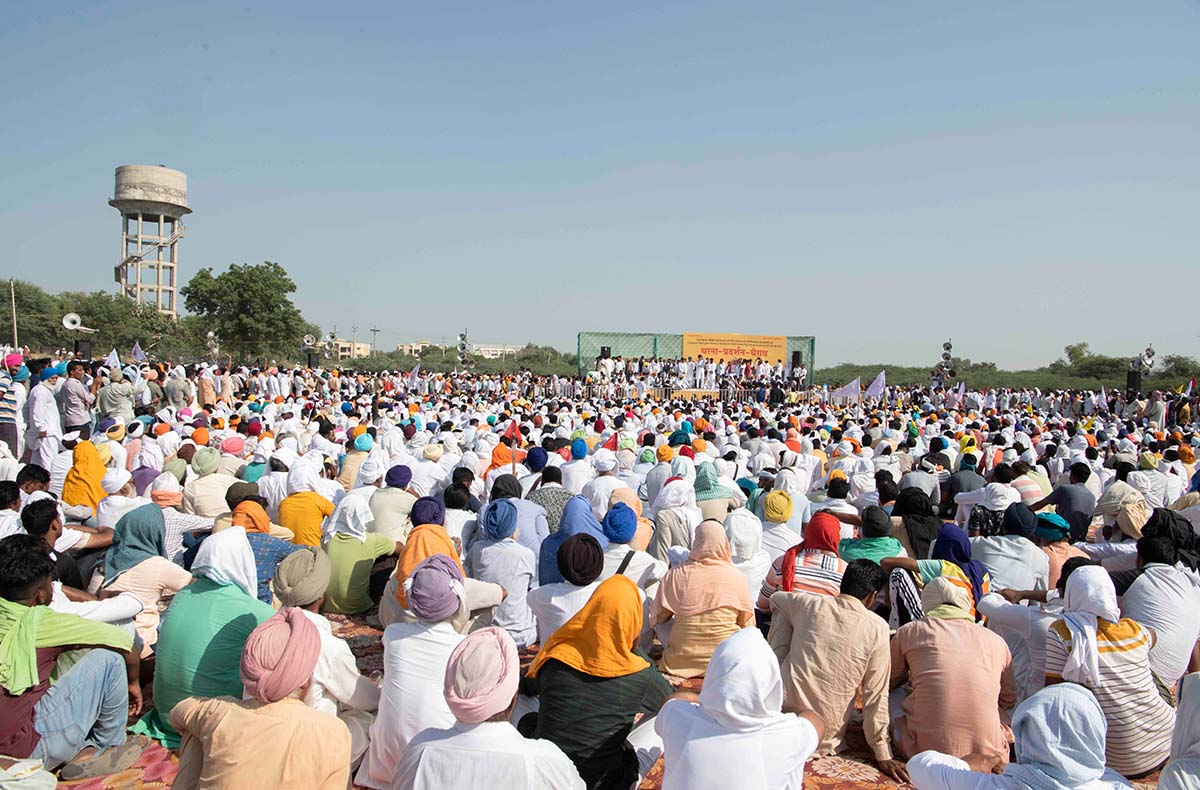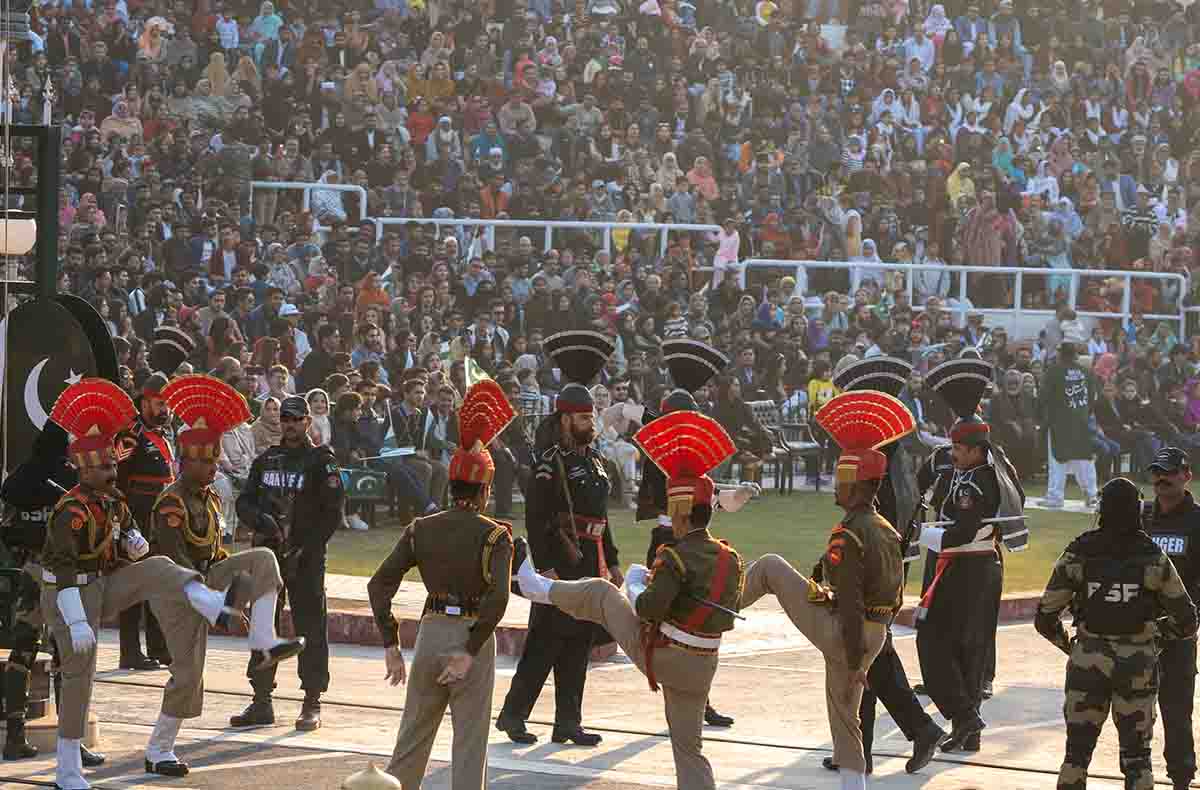
Last year, farmers in India forced Prime Minister Narendra Modi and the Indian government to repeal three farming laws that would have systematically changed the way farmers sold their goods in the future. The three laws were rushed through parliament with no real debate about their contents or the effects they would have on farmers’ livelihoods. The laws sought to deregulate and privatize the farming industry by allowing big corporations to exploit the cut in red tape and farmer protections by pricing out farmers, in turn swallowing the majority share of the marketplace.
Modi‘s u-turn on the farming laws was an uncharacteristic departure from his usual macho, hardline approach to home and foreign affairs. However, it is difficult to justify and tow a policy position line that led to the largest worldwide protest ever, with over 250 million people loudly and proudly disagreeing with you. The protests led to international news coverage, with demonstrations in major cities globally. Prominent celebrities, politicians, and world leaders—including Rihanna, Greta Thunberg, and Justin Trudeau—tweeted and spoke out about the protests too.
Farming and agriculture are the backbones of any country’s economy. Put simply: no farmers, no food. Despite India rapidly industrializing and remaining one of the largest global economies in recent years, the country is still vastly agrarian, with more than 60 percent of India’s 1.3 billion people still depending primarily on agriculture for their livelihood. Farmers took to the streets, creating makeshift camps and blocking off arterial roads into New Delhi. The government and police used several tactics to try and end the protests, including directly blocking off roads, using water cannons, cutting off food, water, the internet, and electricity, and surrounding protestors with barbed wire and barricades. Over 700 lives were unfortunately cut short as a result of the year-long struggle. In some sections of the Indian media, farmers were described as anti-nationalists and terrorists, but farmers rejected this, as their position was simple: they only wanted to be involved and consulted on policies that directly affected their livelihoods.
You wouldn’t think it, but this is the world’s biggest democracy we’re talking about.
The protests highlighted the sheer scale of revolt against the farming laws and laid bare the dire reality of mass income and wealth inequality across much of India. It was a fitting reminder of how farmers—who have so little relative to the country’s rich and powerful elites—have their voices suppressed in favor of the wealthy and influential. Most importantly, though, Modi and his government underestimated the spirit and heart of the farmers themselves. The government would not have expected farmers to protest and strike against the laws as firmly as they did. Modi assumed they would simply roll over and accept his proposed changes. He was wrong. He failed to understand that the proposed law changes mobilized and united all farmers against him.
The Bharatiya Janata Party (BJP) has a firm grip on power, with the ideologically right-wing party dominating the Indian political landscape since Modi took charge. A large and vocal element of the protests came from the northern states of Punjab and Haryana, which have predominantly large minority Sikh populations. Sikhs and farming have a long history, with many Sikhs owning land and farms across the two states. Generations of families would work on this land, providing for the local and broader regional economy. It’s ingrained into the very fabric of religion, culture, and tradition. Sikhism advocates sevā, or “selfless service.” Serving your fellow human beings food is one of the most simple ways of serving humanity more generally. This is synonymous with the fact that if you walk into any gurdwara (Sikh temple) worldwide, no matter your race, religion, skin color, gender, or identity, you will be fed for free. Modi’s proposed law changes not only threatened the livelihoods of these Sikh farmers, but also spoke to the core of the Sikh faith and identity, threatening one of the key principles of the fifth largest global religion. Of course this would spark a strong reaction from Sikh farmers and all other farmers. These protests were the final stand to protect their way of life.
After over a year of protesting, the laws were repealed, indicating a win for the protestors. While this was a significant victory, this won’t be the end of the story. The Indian government backed down for several reasons. The most important was the elections they had coming up in Punjab and Uttar Pradesh (UP) that Modi had to win to strengthen his grip on power in India. Modi and his government knew that UP, a state with almost the same population size as the whole of Brazil that has voted overwhelmingly in the past for the BJP, was slipping away. A poor result on election day would have put a big dent in the image of invincibility that Modi and the BJP have built up since 2014.
Yes, Modi backed down, but that’s not going to stop him from trying again in the future with a revised law package that will simply look like the first package with a cherry on top. Modi’s faux apology exemplified his reasons for backing down. He didn’t just suddenly have an epiphany and see the farmer’s perspective; he didn’t suddenly start to sympathize with farmers; he saw his grip on power slipping—something he could not let happen. He wants to achieve his vision of an all-Hindu nation and couldn’t contemplate losing Uttar Pradesh, a vital piece of that puzzle. Modi will most likely wait until the 2024 Indian general elections are over, assess the strength of his party’s grip on power, and try again with a new legislative package. Time will tell, but one thing is sure; if needed, farmers will be ready to make their voices heard again.



